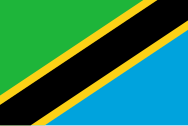
Armand Bérard, Permanent Representative of the French Fifth Republic to the United Nations
Honourable representatives to this august assembly,
Today, I draw your attention to a tragedy that is going on before our very eyes, and beneath our very noses. And yet, so far, the United Nations has refused to look, allowing wilful ignorance - a policy, it seems, of hoping that by ignoring the problem, it will simply go away. But this is not something I believe the world's conscience can, or should, live with, coming so soon after other humanitarian disasters on this grand scale. I direct your eyes to the projection behind me. A starving child, wracked with disease and malnutrition, caused by the deliberate actions of other human beings.

I am certain many of you are familiar with this image, shocking though it may be. It was taken by Dr. Lyle Conrad, an American working for the Red Cross in one of the many refugee camps throughout the Biafra region. The Red Cross, and other charities, are hard at work, aiming to stem the tide of starvation, famine and disease among the population of the region. Their estimates are that five hundred thousand people have already perished due to famine. Deaths, and a tragedy, that are entirely preventable, if this body should choose to act. This figure does not even count the several charity workers from Joint Church Aid who have been killed when their aircraft, bringing medical supplies to the civilian population of the region, have been shot down by Federal Military Government jets, despite their clear peaceful and humanitarian markings.
What has caused this greatest humanitarian crisis in recent times? The answer is simple, and I will not go into the politics and causes of the matter at this time. Suffice to say that the Nigerian Federal Military Government, in carrying out a conflict, has chosen, as its key weapon, famine and deprivation, through its policy of blockade. As the Federal Military Government representative to the bilateral peace conference between Nigeria and Biafra has said, "Starvation is a legitimate weapon of war and we have every intention of using it against the rebels". The Federal Military Government is accused of further atrocities including deliberate bombing of civilians, mass slaughter with machine guns, and rape, but these accusations are set aside, for now.
Whatever your opinion of the events in the region politically, the fact of the matter is that the deaths of half a million men, women, and children - and the inevitable deaths of millions more, victims of the most horrific starvation and disease imaginable - are preventable, and I am certain that we can all agree that, with the power to prevent it, to save millions of lives, then we must surely take it. Inaction is not an option any longer. Turning away our eyes and pretending that this horror is not happening will not make it go away. After the events of the Holocaust, can the world truly, with any kind of conscience or honour, stand by and do nothing while another happens, through different means.
Therefore, I propose that the General Assembly adopts the following resolution, to be effective immediately:
France, naturally, votes Yes.Concerned by the humanitarian situation in the Biafra region caused by the war currently in progress,
Acknowledging that this famine has been caused by the Federal Military Government's deliberate policy of blockade and starvation,
Noting that this resolution, or voting for this resolution, does not imply taking sides with or recognising the legitimacy of any party in the conflict, but is merely a humanitarian measure,
Reminding the members of the United Nations of the provisions of the Universal Declaration of Human Rights, which we have undertaken to uphold as members of this organisation,
The General Assembly therefore:
Condemns the use of mass famine and the deliberate and indiscriminate targeting of civilians as a 'weapon of war',
Calls upon the Federal Military Government of Nigeria to permanently end its blockade,
Pledges that those members of this Assembly that are willing and able should provide humanitarian aid to the Biafra region to alleviate the crisis,
Recommends that voluntary, non-binding sanctions be established against the Federal Military Government until they end their blockade, including an arms embargo,
Advises the United Nations Commission on Human Rights to carry out a full investigation on the events in Nigeria and the Biafra region to determine what violations have occurred.



